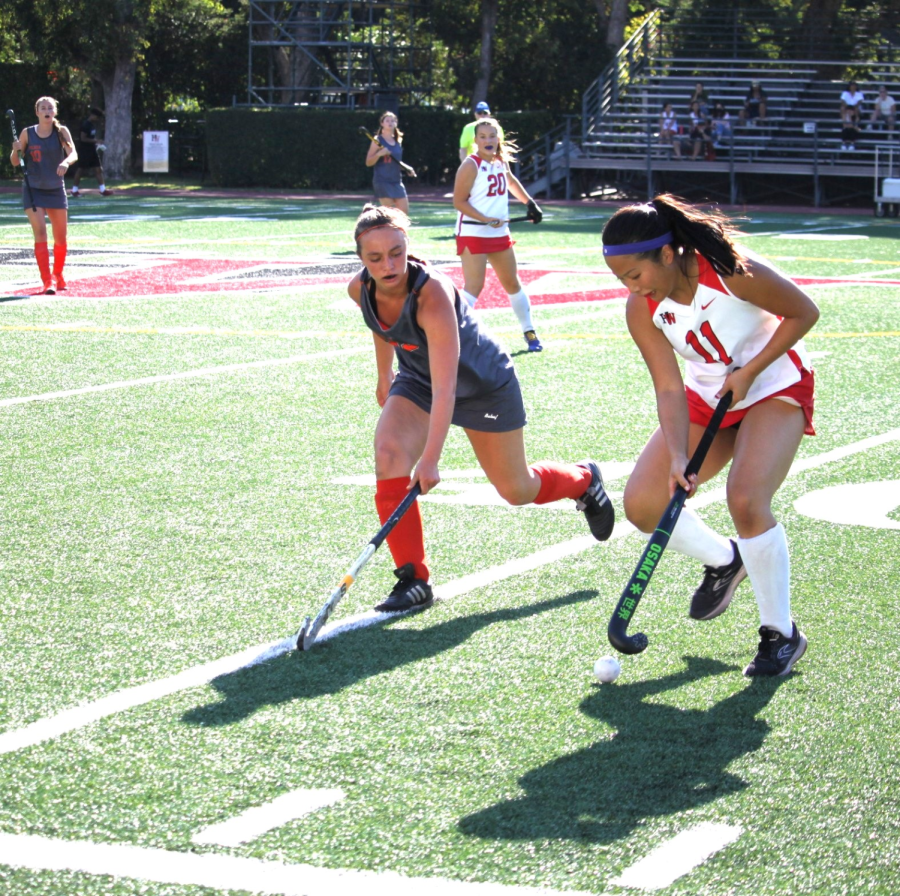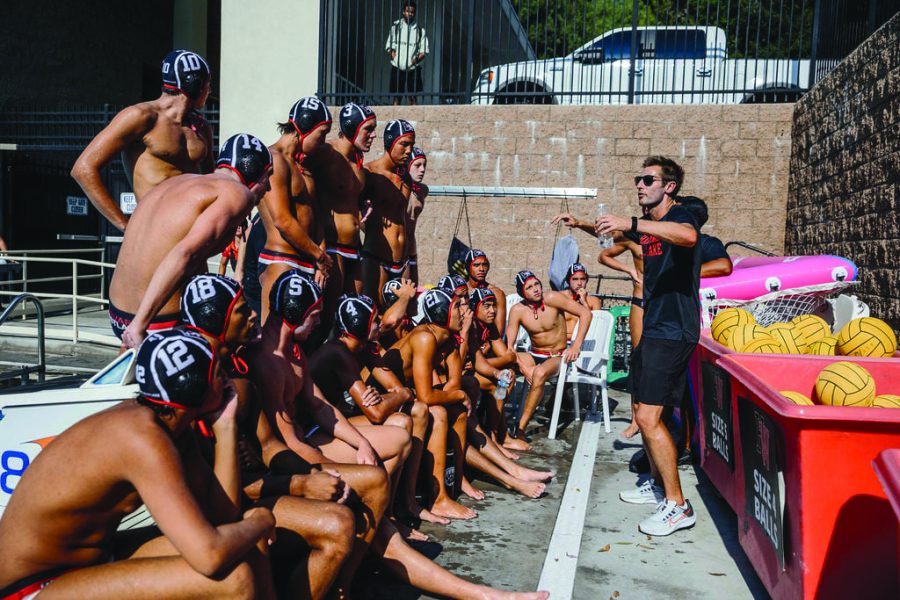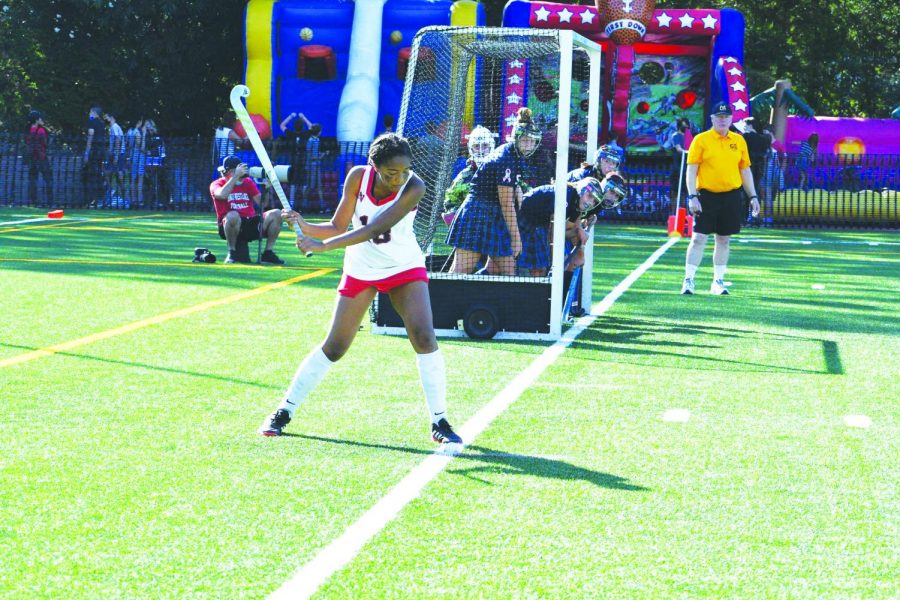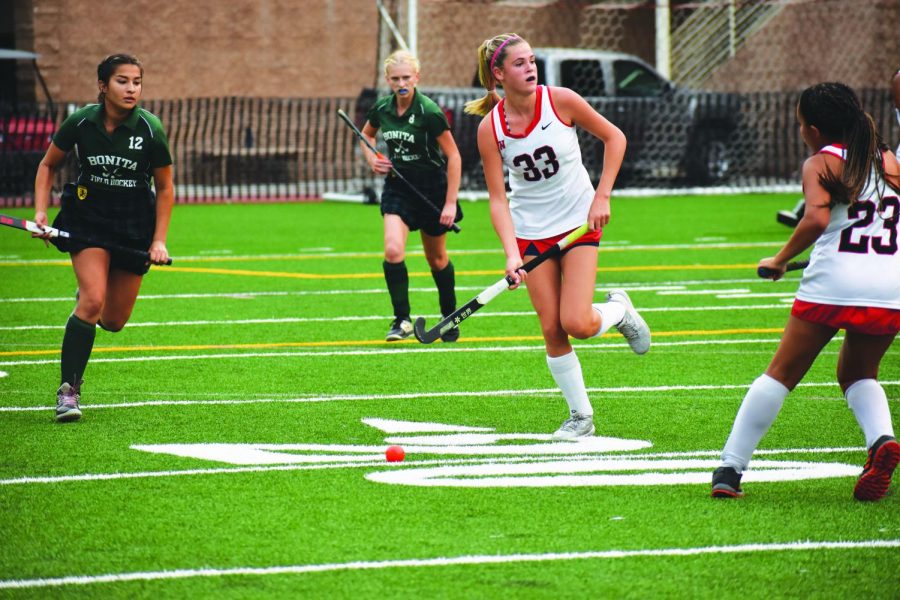“You run like a girl!” “You hit like a girl!” “You throw like a girl!”
We’ve all heard these taunts. Coaches, parents and children often equate a boy’s bad performance with femininity. However, we rarely consider the far-reaching consequences of this behavior. This damaging practice promotes the idea that girls are lesser than, and it permeates the psyches of young boys and girls alike. While boys develop a sense of superiority, girls develop self-doubt and insecurity as a result of this detrimental language.
Unfortunately, we cannot escape this attitude here at Harvard-Westlake. Until very recently, the field hockey team and the football team shared Ted Slavin Field for practices a few times a week. At one of these practices in early September, an assistant football coach made a derogatory remark about field hockey players while our team and head coach stood only feet away. While instructing a drill, the football coach compared his players’ poor tackling to how field hockey players tackle.
Though initially shocked and upset, I did not speak up. Instead, I comforted myself with the thought of writing this piece, hoping to educate a wider audience than a single coach. The incident completely took hold of my concentration, and over the following week I discussed it with administrators, friends, and male and female athletes.
When I spoke with Head of Athletics Terry Barnum, he agreed that the football coach’s comment was insulting.
“What the coach said was completely inappropriate,” Barnum said. “It was hurtful, it was disrespectful and should not have been said, point blank. So whatever he meant by it, whatever motivational object he felt it was going to satisfy, it didn’t. He should not have said it. And that is not the way we want our coaches to act and behave at Harvard-Westlake.”
A week after the incident, Barnum held a meeting with the field hockey team in which we collaboratively brainstormed ideas on how to make female athletes feel more respected at school. In addition, Barnum, football program head Scot Ruggles and the assistant coach in question formally apologized to the field hockey team.
Though administrators understood the need for an apology, there is a disturbing disparity between the reactions of male and female student-athletes. When I brought up the issue with some football players, they nodded knowingly and laughed off the situation. Though they acknowledged that the coach acted foolishly with field hockey players so close by, they did not take issue with the comment itself. They found fault only because we heard him, not because he said it. When I insisted that this incident revealed a deeper problem regarding the disrespectful treatment of female athletes at Harvard-Westlake and in our society, many of them immediately denied that such disrespect exists, or claimed that they personally do not look down upon girls’ sports. In contrast, every single female athlete I talked to felt that her sport was not respected as much as boys’ sports.
The same night as the practice, further mockery of field hockey took place. As a way of promoting the next day’s field hockey game, a student posted a clip from the TV show “Gossip Girl” on the Harvard-Westlake Fanatics Facebook page. The clip showed high school girls “playing” field hockey, though it really consisted of girls beating each other up in a silly scene, with “I Got it From My Mama” by will.i.am. playing in the background. The author of the post wrote that the scene depicted what real field hockey is like at Harvard-Westlake.
This post was eventually taken down, but not until after many students, including my teammates, had seen it.
This type of degradation on the Fanatics page extends to other girls’ sports as well. How many times has a Head Fanatic, either a boy or a girl, cited girls in spandex as a reason to attend a girls’ volleyball game? Or a potential cat fight as motivation to watch our nationally ranked girls’ soccer team?
My goal is not to vilify the football program, male athletes or the Fanatics. The assistant football coach and the author of the Facebook post most likely did not mean harm by their comments, but they are products of a society that perpetuates the demeaning of women. There are, of course, boys who view their female counterparts as equal. At the field hockey game the day after the incident, we had many Fanatics (all of them boys) in the stands cheering just as wildly as they would at a boys’ basketball game. However, we as a community need to become much more conscious of our words and actions when speaking about women in comparison to men.
I challenge my fellow female athletes, and any girl at school who experiences sexual discrimination, to stand up for yourselves and make your voices heard. I understand that it is not easy. I experienced pressure from coaches and players who told me repeatedly not to write this column. In addition, I understand that many girls do not want to be branded as feminists. In the last few weeks, I was called “sassy” for my passionate stance on this issue. But I implore girls to realize that this topic needs to be a part of daily conversations. While name-calling does not stick, persistent efforts to bring about social reform do.
I challenge male athletes, their coaches and their parents to take this opportunity to self-reflect. How many times have you devalued women as a means of elevating men? High school boys will graduate and move on to college and eventually the workplace, where they will continue to consistently interact with women. Though domestic violence and sexual harassment are much more extreme than harsh language on the football field, it all stems from the same place of putting women down.
Let’s live by our new mission statement. “A diverse and inclusive community” must be one that treats everyone equally, regardless of gender, race, sexual orientation or any other differentiating quality.
If we want to begin “living and learning with integrity,” we need to collectively take a good look in the mirror and make sure we are content with what we see.

































